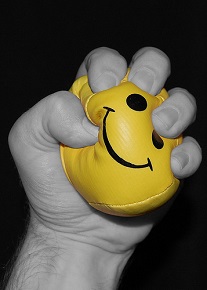How to create more flow in your work?
When I find my flow, I notice that time seems to go faster, or sometimes it even goes slower. I’m less aware of myself and my surroundings, and I am fully focused. Paradoxically, this is the worst moment to stop and think about whether you’re happy or not. However, for me personally, when I look back on these moments, they are always the happiest moments in my working life. According to Mihaly Csikszentmihalyi creating flow in your life is one of the secrets to happiness. Lets take a closer look at flow and find out what it is (and what it isn’t).
Flow is characterized by the following experiences:
- Your sense of time changes (time seems to go faster or slower).
- You forget yourself.
- You forget your surroundings.
- You have no worries.
- You are fully focused.
- You feel inspired.
- You feel like you are surpassing yourself.
- Often, flow also results in exceptional achievements.
What do we mean with flow?
Flow is not like daydreaming. It therefore does not mean that you are losing yourself in random thoughts, such as when you have been driving for a while and you realize that you have covered a great distance without even noticing it. When you are daydreaming, you are not pushing yourself. You are simply on automatic pilot because what you are doing is entirely routine. When you find your flow, you immerse yourself in an activity that consumes your attention in its entirety. You need all of your skills and qualities to ensure that everything keeps running smoothly, and you have no time to stop and think about how you feel. It is a state of intense enthusiasm that completely takes over your being.
For flow you need balance
To generate flow, you need to be challenged just enough, and it is a delicate balance. If the challenge is too great, then you can risk overstretching yourself. At first, you get excited, but once your energy is too low to banish the insecurity, then apprehension and anxiety take over. In the long run, this reduces your level of happiness and decreases productivity, and can even result in excessive stress and burn-out. If you are challenged too little, then after a while, the feeling of safety and security turns into boredom and apathy. Paradoxically, it can also result in stress. In the long-term, ‘understretching’ yourself can result in a phenomenon known as bore-out: reduced productivity and danger of staff outflow due to extreme boredom.
What can you do to get more flow?
The trick is to get yourself into a position where you are challenged just enough. You are the only one person who can tell when you are in full flow or if your level of challenge is too high or too low. You are the captain of your flow. Flow also results in optimal development and boosts happiness at work, so it is a good indicator of how happy you are in your work. Do you want to know more about flow? Take a look at this interesting Ted talk by Csiksentmihalyi on Flow. You can also take a look at chapter 3 of our book. Both will provide you with the inspiration and practical assignments to improve the amount of flow you can experience in your work. Enjoy!



